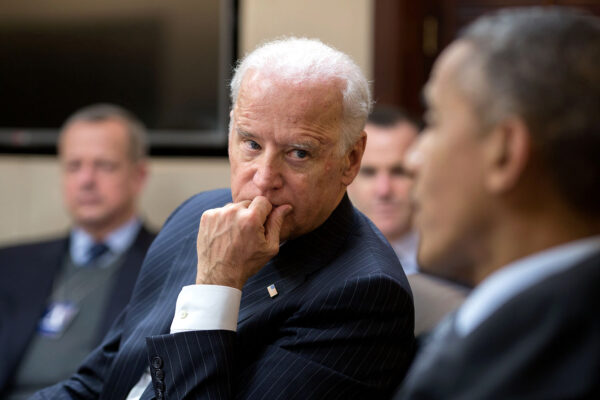
With Joe Biden favored to win the American presidential election in November, Vladimir Putin’s days of comfort may be coming to an end.
Unlike Donald Trump, who has coddled the Russian leader, accepted his denials of 2016 election interference and lifted sanctions on Putin ally Oleg Deripaska, an oligarch who funded pro-Russian political parties in Ukraine (which were advised by later Trump campaign manager Paul Manafort), the Democrat considers Putin a “thug”, a “dictator” and a threat to “the foundations of Western democracy.”
Unlike Trump, who has given up America’s power to shame, Biden insists America should lead “not just by the example of our power, but by the power of our example.”
Sanctions
Trump expressed dismay when the State Department expelled sixty Russian diplomats and imposed additional sanctions on the country after the United Kingdom had blamed it for the poisoning of defector Sergei Skripal and his daughter, Yulia, in Salisbury in 2018. He even told Theresa May, the British prime minister at the time, that he doubted Russia was behind the assassination attempt.
Biden is likely to keep sanctions in place. As vice president, he played a role in galvanizing international support for sanctions imposed after Russia annexed the Crimean Peninsula from Ukraine. The embargo caused a collapse in the value of the ruble and conspired with falling oil prices to throw the Russian economy into recession.
Allies
Trump’s mafia approach to NATO — you don’t pay, you don’t get protection — would change.
Biden has promised that his administration will “do more than restore [America’s] historic partnerships” and “lead the effort to reimagine them for the future.” He knows Putin “fears a strong NATO” and that the only way to resist Russian aggression is with allies.
Biden may look to enhance Eastern European integration with NATO. In particular, he could seek to bring Russia’s Balkan ally Serbia into the Western camp. The former vice president met the current Serbian president Aleksandar Vučić in 2016. The two seemed to have a good relationship. Biden went as far as to offer America’s help in modernizing Serbia’s armed forces, so they could “better cooperate with NATO.”
